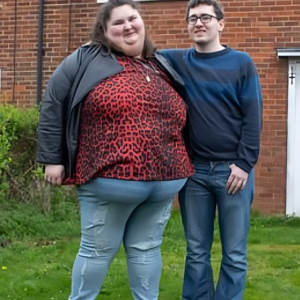At work, there was this quiet guy named Paul who always brought the same plain sandwich for lunch. No chips, no drink, nothing fancy. We teased him for it sometimes, and he’d just smile without saying much. When he quit, I offered to help him clean out his desk — and that’s when I found the stack of children’s drawings in his drawer.
They were tied together with a rubber band — hearts, stick figures, and messages like “Thank you Mr. Paul.” One drawing showed a sandwich and a man handing it to other stick figures lined up beside him. In one, a speech bubble said, “I’m not hungry today.”
It stopped me cold. Paul had never mentioned having kids. No family photos, no calls, nothing. Just quiet routine. When I asked him about it later, he didn’t explain much. He just said, “You ever been to the West End Library around 6 p.m.? Come by sometime. You’ll see.”
A few days later, curiosity got the better of me. I drove there after work and found Paul standing near the side entrance with a cooler bag and brown paper lunch sacks. About fifteen kids — some homeless, some clearly struggling — were lined up, waiting. Paul handed each one a bag, saying a few soft words, never making a show of it.
When I walked up, he smiled that same calm office smile. “Most of them don’t get dinner,” he said. “So I figured I could make sure they get one meal a day.”
It turned out those plain sandwiches weren’t just his lunch — they were practice. He made identical ones every morning for the kids. Peanut butter and jelly. Simple, reliable, familiar. “Same sandwich every time,” he said. “No one complains. Some say it’s the best part of their day.”
The jokes we used to make about his boring lunches suddenly felt cruel. I started going with him after work, helping where I could. At first, we didn’t talk much. Then one morning, while we were making sandwiches in his small, bare apartment, I asked why he started.
He said quietly, “I grew up in foster care. Some nights, I didn’t eat. I know what it’s like to be hungry and invisible.”
That line stuck with me. For him, this wasn’t charity. It was healing.
Then one week, he didn’t show up. I called, no answer. I waited at the library with the lunch sacks he’d prepped, and one little girl asked, “Where’s Mr. Sandwich Man?”
A few days later, I got a call from the hospital. I was his emergency contact — the only one. He’d collapsed from exhaustion and stress. When I saw him, he looked frail but smiled. “Did you bring sandwiches?” he joked. I told him I made them myself. He squeezed my hand and whispered, “Promise me you’ll keep it going. Just until I’m back.”
I promised.
Weeks passed, and coworkers noticed me rushing out each day. When I told them why, they joined in. Soon, we were all making sandwiches in the break room on Fridays — calling it “Sandwich Fridays.” Someone even designed stickers for the bags: a cartoon sandwich wearing a superhero cape.
When Paul recovered, he didn’t come back to work. He started a nonprofit instead — One Meal Ahead. He said the name came from something his foster dad once told him: “You don’t need a full plan, kid. Just be one meal ahead of the worst day.”
He still runs it. Some of those kids he helped are grown now. They remember him. One boy, Marcus, told me once, “He didn’t try to fix everything. He just made sure I wasn’t starving. That was enough.”
Paul never bragged. Never looked for recognition. He just kept showing up with quiet kindness.
Sometimes, I think about how we laughed at his plain sandwiches. How we missed the quiet miracle happening right under our noses. Heroes don’t always wear capes. Some wear brown jackets and carry lunch sacks.
So if you ever wonder whether one small act matters — it does. Paul proved it every day with a sandwich and a quiet smile.





